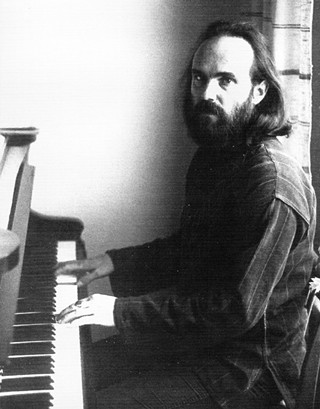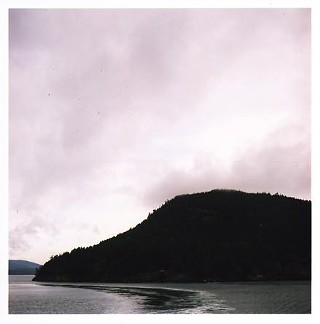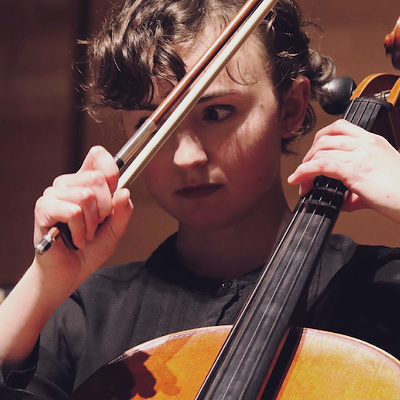Composer and pianist Lubomyr Melnyk seems, at times, to have landed from another place or time. It's possible, too: He claims that his "continuous music" technique lets the pianist "transcend all limits of time and space," and that the "continuous pianist operates at speeds beyond human capacity." Melnyk has been clocked in as the world's fastest pianist, playing at speeds of over 19 notes per second.
Deriving from a minimalist tradition, Melnyk's rapid arpeggios bring to mind contemporary classical composers like Erik Satie, Philip Glass or Terry Riley, as well as traditional classical music. "You could call it Chopinesque, or machinelike," he says, "the music changes faces, creates different worlds." He perhaps has most in common with 20th-century American composer Conlon Nancarrow, who composed rapidly played scores for player piano, finding the limits of the human player overly imposing. Melnyk takes this one step further, aiming to transform himself into the machine or superhuman pianist.
"I was interested in my youth in perfecting and advancing the art of the physical technique," he says. He lived in Paris in the 1970s, where he worked as an accompanist to contemporary dance performances at the Paris Opera, and developed the technique of "continuous music." Melnyk was trained classically at the University of Manitoba. "Around the age of 20 I devoted my life and soul to the piano as an esoteric goal," he says. He lived what he refers to as a "Buddhist monk's life," developing his musicianship and physical capability.
Melnyk is a man of superlatives. "The piano has been waiting for over two centuries for this," he states emphatically. Continuous music entails a rapid flow of notes, played with the piano's pedal sustained throughout, creating a resonant sound that listeners at performances have sometimes claimed to hear entire orchestras in. "What I do on the piano is impossible for any pianist to do," he says. He strives to create beautiful music, and to advance the world and capabilities of the pianist. The physical aspect is half the battle of performing. When he decided to devote his life to the piano as a young man, it was "not a career, but a profound physical development, in a religious sense."
Mastery of continuous music is a life's work, one that will never be complete for him. In continuous music, the performer's two hands act as separate entities, playing distinct patterns---this and the speed of playing require a high level of physical commitment and concentration. He calls the process more of a discovery than anything, deriving in his youth from his monastic lifestyle---fortuitous, perhaps, like Archimedes in his bath. Melnyk claims that the body's flesh is altered by the playing---both the performer's and the audience's. He aims to overcome physical limitations. "When I'm playing, I feel as though I'm literally flying...I see the notes below, and they mesh into a road."
Melnyk studied philosophy, and was inspired by Eastern philosophy and the idea of making time stand still by transcending physical barriers. Raised in Winnipeg, his parents were Ukrainian refugees, and his heritage is the source of many pieces. His 1983 work, POSLANIYE, is based on the work of 19th-century Ukrainian nationalist poet Taras Shevchenko. Others derive from folklore, mythology and fantasy, including authors like J.R.R. Tolkien and C.S. Lewis. "I'm a big fan of Tolkien," he says. "It's sad that people focus on the storyline rather than the quality of the writing...I'm inspired by the feelings of the Lord of the Rings." He relates this too to his heritage: he sees the land of Lothlorien in the saga as an allegory for the oppression and struggles in Ukraine's history. "I watch the destruction and death of the country, my land, my people..."
These days, though, Melnyk says, "I read very little; music takes so much time. Now I'm getting older---I can't say up until two in the morning any more." He speaks from Winnipeg, where he'll spend the next few months before returning to a yet-undecided location in Scandinavia, his adopted second homeland. Though he's performed worldwide over four decades, this will be his first Halifax performance. Prepare to be altered.














